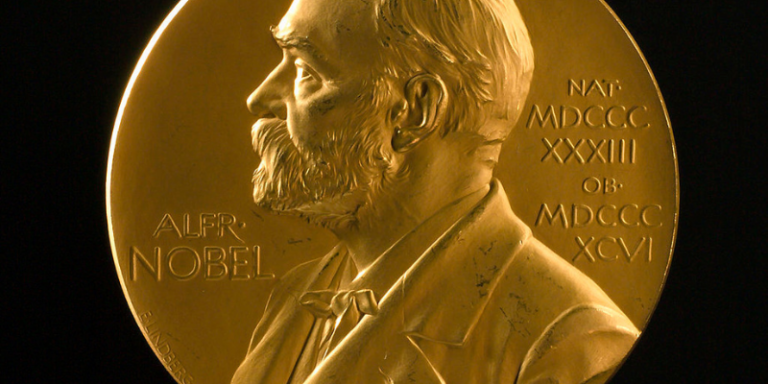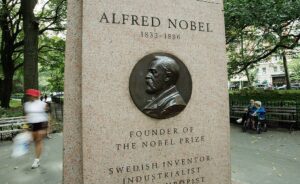Nobel Prize: What Does it Mean?
Every year, the Nobel Prize rewards whoever seems to have done the greatest good for humanity that year.
By: Kelli Ballard | October 15, 2019 | 405 Words

(Photo by SSPL/Getty Images)
The Nobel Peace Prize is a well-known award given to people or organizations that have demonstrated an extraordinary effort to improve the world. This year’s award went to Ethiopian Prime Minister Abiy Ahmend Ali “for his efforts to achieve peace and international cooperation, and in particular for his decisive initiative to resolve the border conflict with neighbouring Eritrea.”
Ali was recognized for many other reasons, as well. In his first 100 days as Prime Minister, he managed to lift the country’s state of emergency, grant amnesty to thousands of political prisoners, dismiss military and civilian leaders who were suspected of corruption, discontinue media censorship, legalize opposition groups that had been outlawed, and increase the influence of women in the political and community life.
History of the Nobel Peace Prize
When Swedish businessman Alfred Nobel died in 1895, he left 31.5 million Swedish crowns in his will, much of which was to fund a program “the interest on which shall be annually distributed in the form of prizes to those who, during the preceding year, shall have conferred the greatest benefit on mankind.”

(Photo by Mario Tama/Getty Images)
Nobel’s will also specified that the Peace Prize was to be awarded by a committee of five persons, which would be selected by the Norwegian Storting (parliament). The first Nobel committee was set up in August of 1897. The very first Nobel Peace Prize was awarded in 1901 and shared between two people: Frenchman Frederic Passy and the Swiss Jean Henry Dunant.
Past Winners of the Nobel Peace Prize
For more than 100 years, the Norwegian Committee has been choosing recipients and awarding the Nobel Prize. Sometimes, organizations received the honor, such as the International Campaign to Abolish Nuclear Weapons (2017), Organisation for the Prohibition of Chemical Weapons (2013), Doctors Without Borders (1999), United Nations Peacekeeping Forces (1988), and the Red Cross on numerous occasions.
Other times, individuals such as former presidents have received the award. In 2009, Barack Obama received the award after only being president for less than nine months in office. Jimmy Carter was honored in 2002. In 1906, Theodore Roosevelt received the award for “having negotiated peace in the Russo-Japanese war.” Roosevelt was the first national leader to receive recognition, and it was not a popular decision at the time. Some even said Nobel must be turning in his grave. Former president Woodrow Wilson won in 1919 for being the “leading architect of the League of Nations.”
















